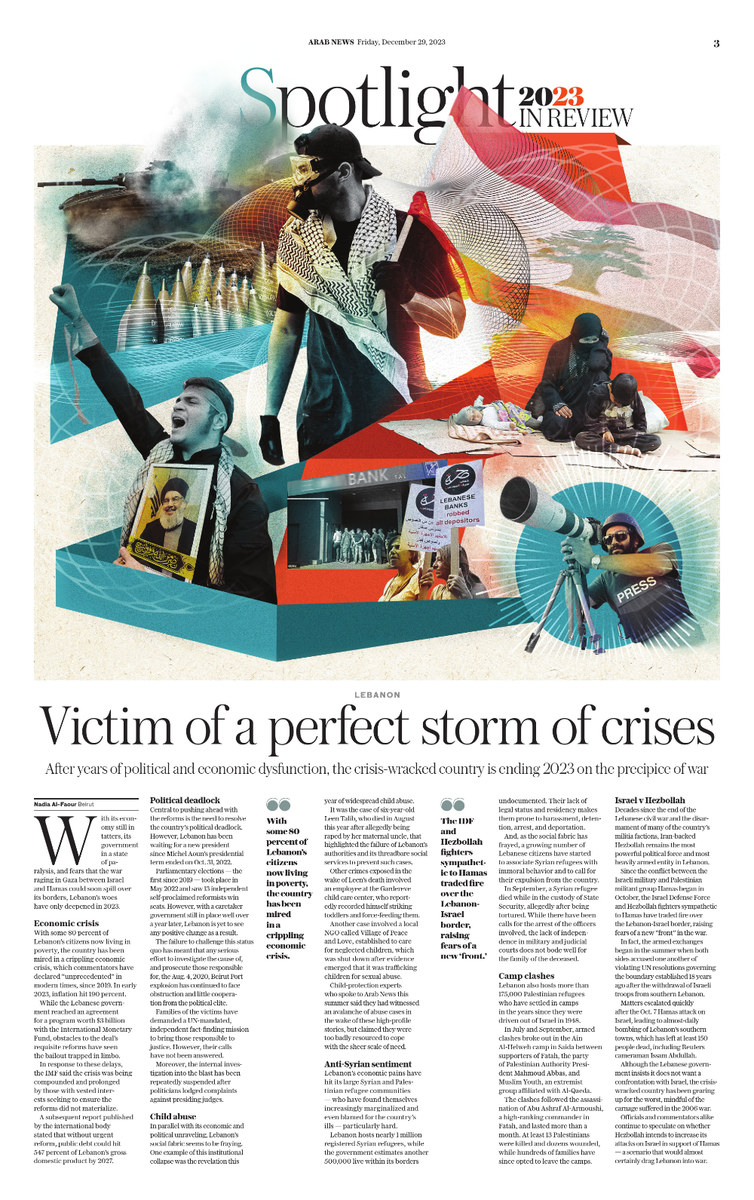BEIRUT: With its economy still in tatters, its government in a state of paralysis, and fears that the war raging in Gaza between Israel and Hamas could soon spill over its borders, Lebanon’s woes have only deepened in 2023.
Economic collapse
With some 80 percent of Lebanon’s citizens now living in poverty, the country has been mired in a crippling economic crisis, which commentators have declared “unprecedented” in modern times, since 2019. In early 2023, inflation hit 190 percent.
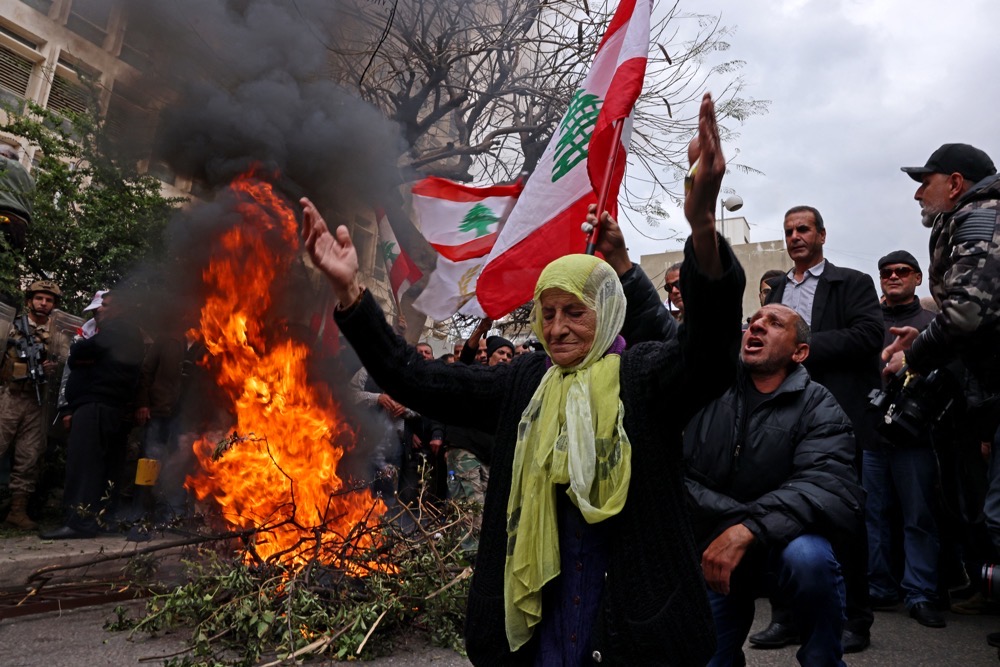
The IMF said the crisis was being compounded and prolonged by those with vested interests seeking to ensure the reforms did not materialize. (AFP)
While the Lebanese government reached an agreement for a program worth $3 billion with the International Monetary Fund, obstacles to the deal’s requisite reforms have seen the bailout trapped in limbo.
In response to these delays, the IMF said the crisis was being compounded and prolonged by those with vested interests seeking to ensure the reforms did not materialize.
A subsequent report published by the international body stated that without urgent reform, public debt could hit 547 percent of Lebanon’s gross domestic product by 2027.
Political deadlock
Central to pushing ahead with the reforms is the need to resolve the country’s political deadlock. However, Lebanon has been waiting for a new president since Michel Aoun’s presidential term ended on Oct. 31, 2022.
Parliamentary elections — the first since 2019 — took place in May 2022 and saw 13 independent self-proclaimed reformists win seats. However, with a caretaker government still in place well over a year later, Lebanon is yet to see any positive change as a result.
The failure to challenge this status quo has meant that any serious effort to investigate the cause of, and prosecute those responsible for, the Aug. 4, 2020, Beirut Port explosion has continued to face obstruction and little cooperation from the political elite.
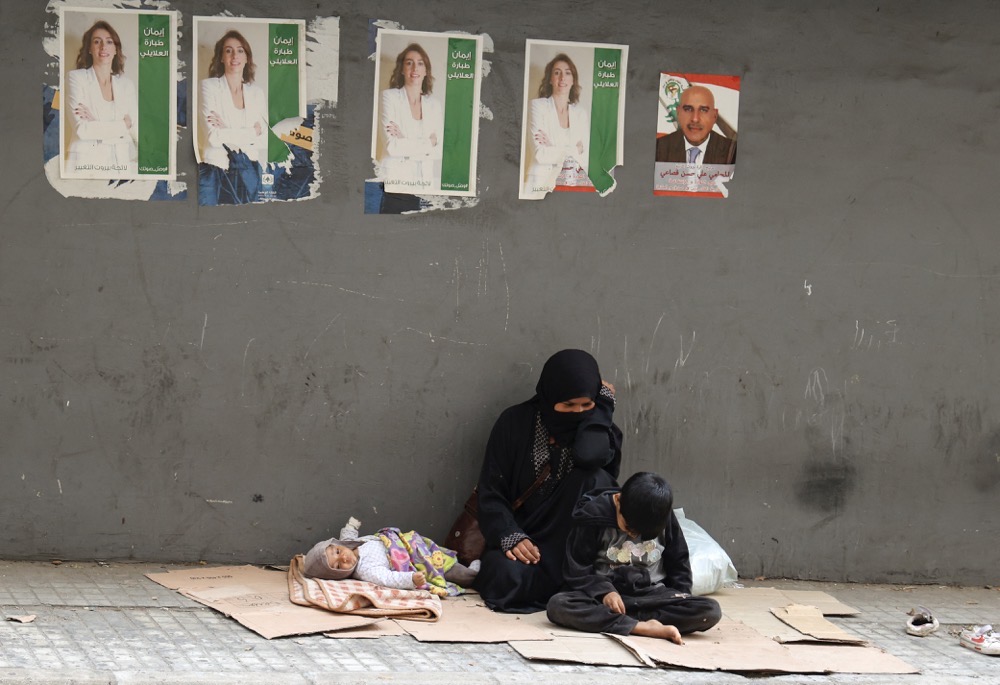
A woman sits with her children on the sidewalk beneath electoral posters in Beirut. (AFP)
The blast — the biggest non-nuclear explosion in history — killed at least 218, injured some 7,000, and left 300,000 homeless, when tons of ammonium nitrate improperly stored in a warehouse caught fire.
Families of the victims have demanded a UN-mandated, independent fact-finding mission to bring those responsible to justice. However, their calls have not been answered.
Moreover, the internal investigation into the blast has been repeatedly suspended after politicians lodged complaints against presiding judges.
Child abuse
In parallel with its economic and political unraveling, Lebanon’s social fabric seems to be fraying. One example of this institutional collapse was the revelation this year of widespread child abuse.
It was the case of a six-year-old, who died in August this year after allegedly being raped by her maternal uncle, that highlighted the failure of Lebanon’s authorities and its threadbare social services to prevent such cases.
Other crimes exposed involved an employee at a child care center, who reportedly recorded himself striking toddlers and force-feeding them.
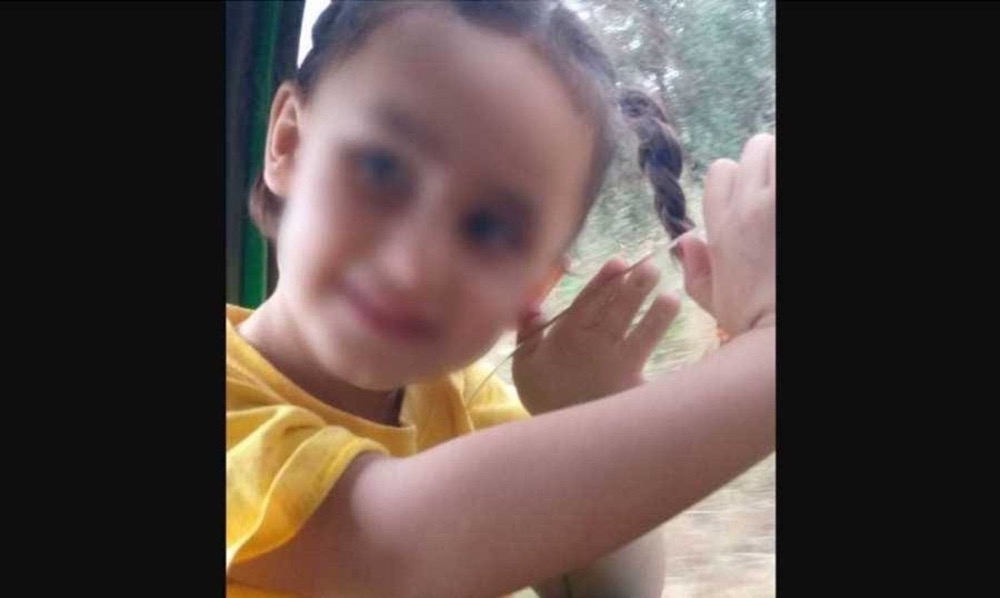
Leen Taleb. (Twitter photo)
Another case involved a local NGO, established to care for neglected children, which was shut down after evidence emerged that it was trafficking children for sexual abuse.
Child-protection experts who spoke to Arab News this summer said they were aware of numerous abuse cases, but claimed they were too badly resourced to cope with the sheer scale of need.
Some analysts believe the spate of child abuse is the result of chronic underfunding for social services and community policing, as well as a rise in criminality and vice in general in light of the country’s economic and social collapse.
Anti-Syrian sentiment
Lebanon’s economic pains have hit its large Syrian and Palestinian refugee communities — who have found themselves increasingly marginalized and even blamed for the country’s ills — particularly hard.
Lebanon hosts nearly 1 million registered Syrian refugees, while the government estimates another 500,000 live within its borders undocumented. Their lack of legal status and residency makes them prone to harassment, detention, arrest, and deportation.
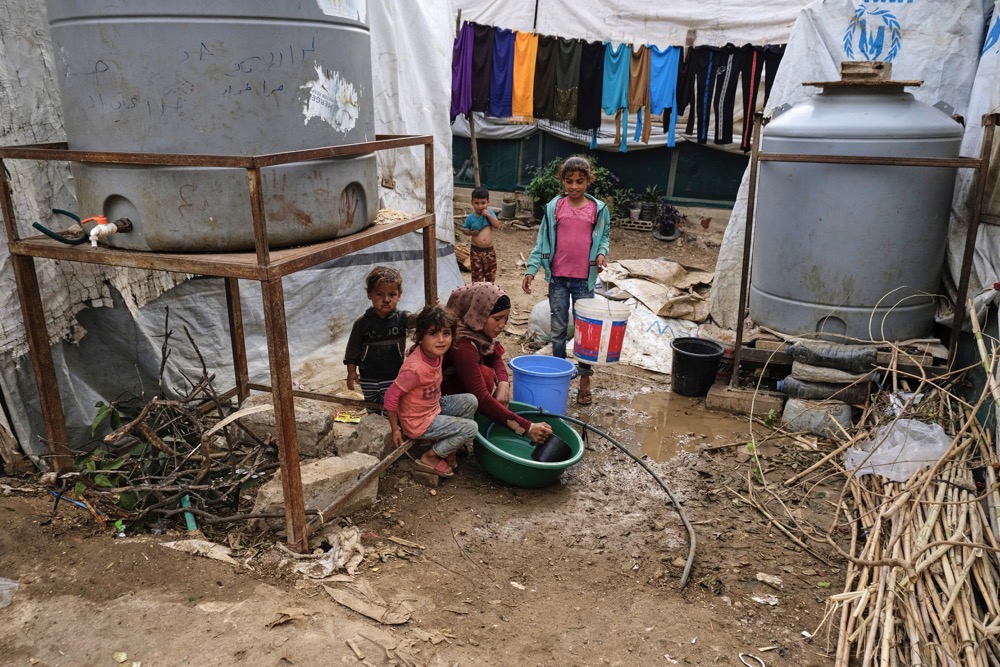
A woman washes dishes outside a make-shift camp for Syrian refugees in a district in north Lebanon. (AFP)
And, as the social fabric has frayed, a growing number of Lebanese citizens have started to associate Syrian refugees with immoral behavior and to call for their expulsion from the country.
In September, a Syrian refugee died while in the custody of State Security, allegedly after being tortured. While there have been calls for the arrest of the officers involved, the lack of independence in military and judicial courts does not bode well for the family of the deceased.
Camp clashes
Lebanon also hosts more than 175,000 Palestinian refugees who have settled in camps in the years since they were driven out of Israel in 1948.

Smoke billows above buildings after clashes in the Ain Al-Helweh camp for Palestinian refugees on the outskirts of Lebanon's southern city of Sidon. (AFP)
In July and September, armed clashes broke out in the Ain Al-Helweh camp in Saida between supporters of Fatah, the party of Palestinian Authority President Mahmoud Abbas, and Muslim Youth, an extremist group affiliated with Al-Qaeda.
The clashes followed the assassination of Abu Ashraf Al-Armoushi, a high-ranking commander in Fatah, and lasted more than a month. At least 13 Palestinians were killed and dozens wounded, while hundreds of families have since opted to leave the camps.
Israel v Hezbollah
Decades since the end of the Lebanese civil war and the disarmament of many of the country’s militia factions, Iran-backed Hezbollah remains the most powerful political force and most heavily armed entity in Lebanon.
Since the conflict between the Israeli military and Palestinian militant group Hamas began in October, the Israel Defense Force and Hezbollah fighters sympathetic to Hamas have traded fire over the Lebanon-Israel border, raising fears of a new “front” in the war.
In fact, the armed exchanges began in the summer when both sides accused one another of violating UN resolutions governing the boundary established 18 years ago after the withdrawal of Israeli troops from southern Lebanon.
At the time, both Israel and Hezbollah threatened one another with a level of destruction that would “bring the country back to the stone age.”
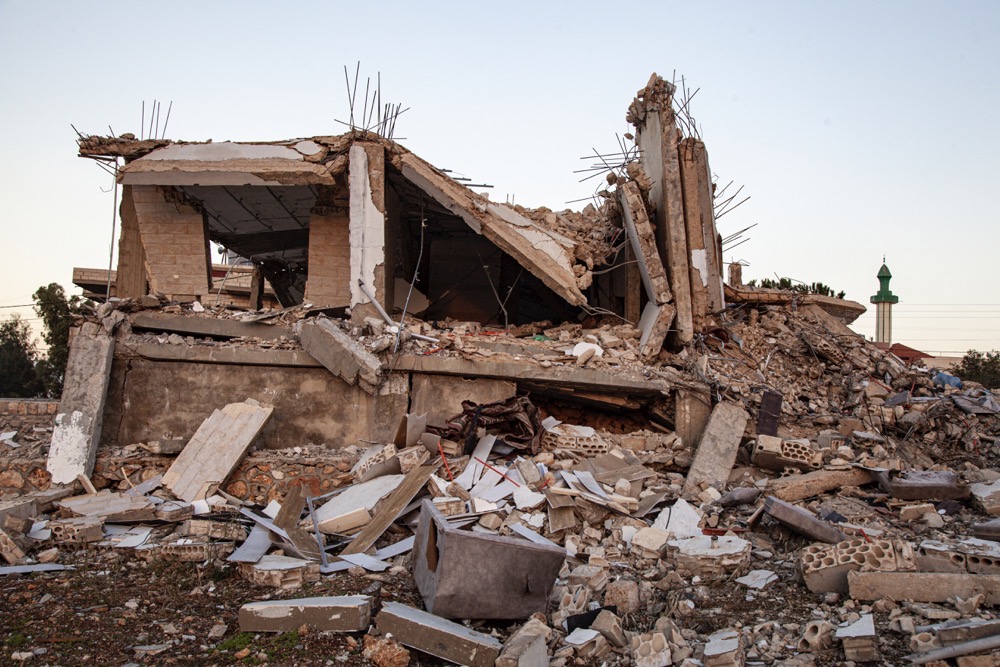
The ruins of a house after an Israeli air raid in Majdal Zoun, Lebanon. (AFP)
Matters escalated quickly after the Oct. 7 Hamas-led attack on Israel, leading to almost daily exchange of fire between Lebanon-based militants and Israel, which has left at least 150 people dead, including Reuters cameraman Issam Abdullah. Most of the dead are Hezbollah combatants.
Although the Lebanese government of caretaker Prime Minister Najib Mikati insists it does not want a confrontation with Israel, the crisis-wracked country has been gearing up for the worst, mindful of the carnage suffered in the 2006 war.
Schools, hospitals, and government agencies started preparing for evacuations in October and several ministries have already allocated emergency funds in case a war breaks out.
Officials and commentators alike continue to speculate on whether Hezbollah intends to increase its attacks on Israel in support of Hamas — a scenario that would almost certainly drag Lebanon into war.
